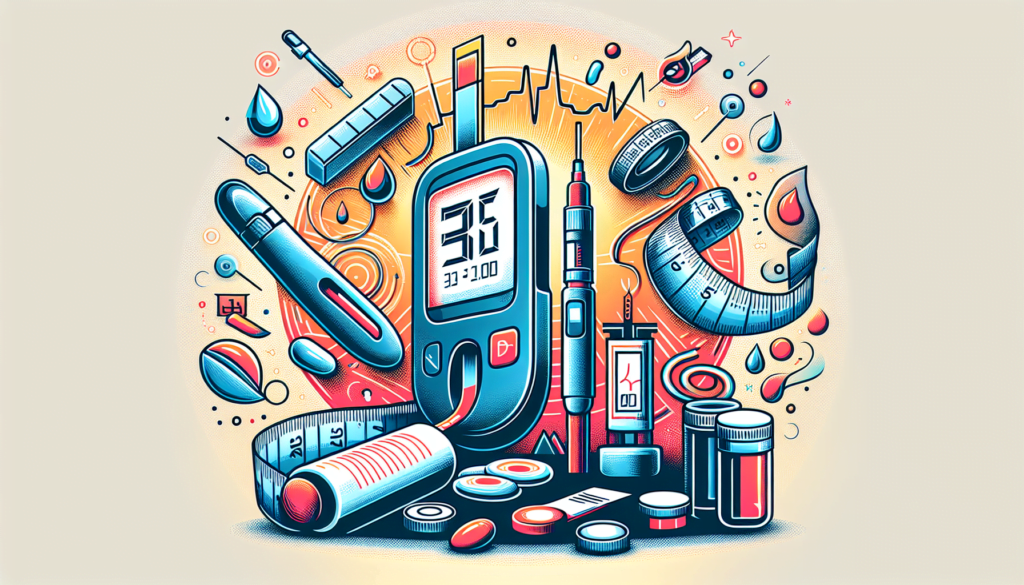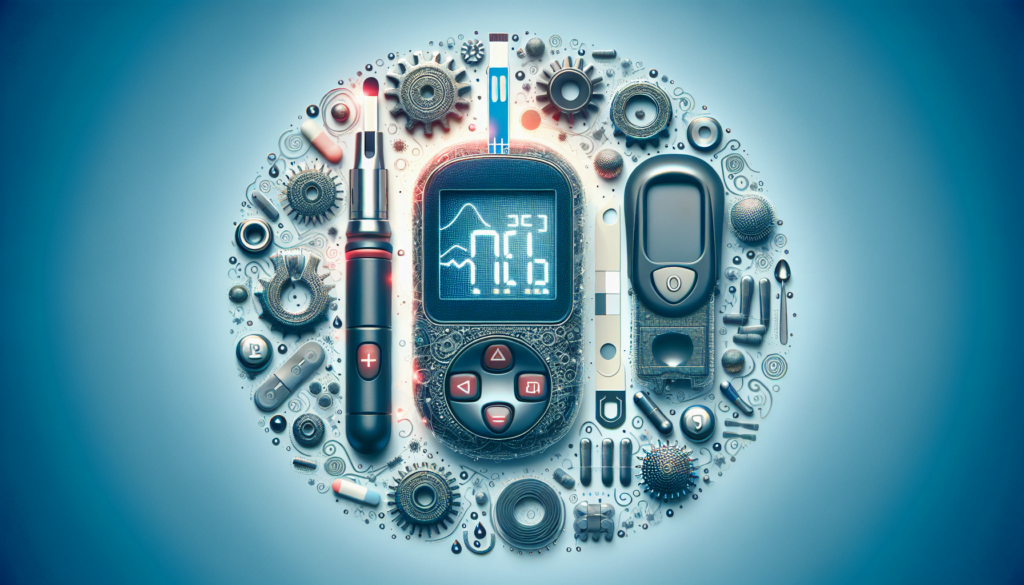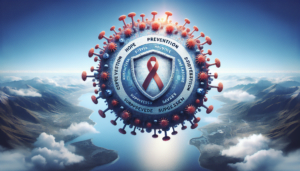Having a blood sugar level of 250 can be quite concerning, but fear not, for there are steps you can take to bring it back to a healthier range. In this article, we will explore some practical strategies to help you lower your blood sugar and maintain a more stable level. By making simple adjustments to your diet and lifestyle, you can take charge of your health and keep your blood sugar in check. So, if you’re wondering what to do when your blood sugar is 250, keep reading to discover some helpful tips.

Understanding Blood Sugar Levels
Managing your blood sugar levels is essential for maintaining your overall health and well-being. Blood sugar, also known as blood glucose, refers to the amount of sugar present in your blood. It is measured in milligrams of glucose per deciliter of blood (mg/dL). Understanding the normal range of blood sugar levels is crucial to help you identify any deviations and take the necessary actions.
Normal Blood Sugar Range
A normal blood sugar range for adults without diabetes typically falls between 70 and 99 mg/dL when fasting (before eating) and less than 140 mg/dL two hours after a meal. For individuals with diabetes, target blood sugar levels may vary, and your healthcare provider will provide you with specific guidelines.
High Blood Sugar Levels
When your blood sugar levels consistently exceed the normal range, it is considered high blood sugar or hyperglycemia. It can be a result of various factors, such as consuming high-sugar foods, insufficient physical activity, inadequate diabetes medication dosage, or hormonal changes. High blood sugar levels can lead to various health risks, so it is crucial to take immediate actions to address them.
Potential Health Risks
Persistent high blood sugar levels can have detrimental effects on your health. It can increase your risk of developing complications related to diabetes, such as cardiovascular disease, nerve damage, kidney problems, and eye conditions. High blood sugar levels can also cause symptoms like increased thirst, frequent urination, fatigue, blurred vision, and slow wound healing. Hence, it is important to address high blood sugar levels promptly.
Immediate Actions
When you discover that your blood sugar levels are high, there are several immediate actions you can take to help bring them back to a normal range.
Check for Symptoms
The first step is to be aware of any symptoms you may be experiencing. Common signs of high blood sugar include increased thirst, frequent urination, fatigue, blurred vision, and irritability. By recognizing these symptoms, you can better understand how your body is reacting to high blood sugar.
Measure Blood Sugar Again
To ensure the accuracy of your blood sugar reading, it is recommended to measure your levels again using a blood glucose meter. This will help confirm whether your levels remain high or if there was a temporary spike.
Take Prescribed Medication
If you have been prescribed medication for managing your blood sugar levels, it is essential to take it as directed by your healthcare provider. This may involve taking oral medications or administering insulin injections. Following your prescribed medication regimen will help regulate your blood sugar levels.
Drink Plenty of Water
Staying hydrated is crucial when dealing with high blood sugar levels. Drinking plenty of water can help flush out excess sugar through increased urination and promote overall hydration. Aim to drink at least eight glasses of water per day or as recommended by your healthcare provider.
Dietary Measures
Adopting a healthy diet can play a significant role in managing your blood sugar levels. Making the right choices when it comes to your food intake can help regulate your blood sugar and prevent spikes.
Avoid High Sugar Foods
To avoid further elevating your blood sugar levels, it is important to steer clear of high sugar foods. These include sugary beverages, sweets, pastries, and processed snacks. Opt for healthier alternatives like fresh fruits, vegetables, and whole grains.
Consume Fiber-Rich Foods
Fiber-rich foods can help slow down the absorption of sugar in your bloodstream, preventing rapid spikes in blood sugar levels. Incorporate foods such as whole grains, legumes, nuts, seeds, and leafy green vegetables into your meals to increase your fiber intake.
Choose Low Glycemic Index Foods
Foods with a low glycemic index (GI) have a slower and more gradual impact on your blood sugar levels. These foods include non-starchy vegetables, lean proteins, and whole grains. Avoid high GI foods like white bread, white rice, potatoes, and sugary cereals.
Follow a Well-Balanced Diet
Maintaining a well-balanced diet is essential for managing your blood sugar levels. Aim to incorporate a variety of nutrient-rich foods into your meals, including lean proteins, healthy fats, and complex carbohydrates. Portion control is also important to prevent overconsumption of foods that can spike your blood sugar levels.

Physical Activity
Engaging in regular physical activity is not only beneficial for your overall health but also helps regulate blood sugar levels. Incorporating different types of exercises into your routine can have a positive impact on managing your blood sugar levels.
Engage in Moderate Exercise
Engaging in moderate exercise, such as brisk walking, swimming, or cycling, can help improve your body’s sensitivity to insulin, the hormone responsible for regulating blood sugar. Aim for at least 150 minutes of moderate-intensity aerobic exercise per week, spread out over several days.
Try Aerobic Activities
Aerobic activities, also known as cardio exercises, can be especially beneficial in managing blood sugar levels. These activities increase your heart rate and respiratory rate, helping your body use glucose more efficiently. Examples include jogging, dancing, and aerobics classes.
Incorporate Strength Training
Adding strength training exercises to your routine can help build muscle mass, improve insulin sensitivity, and lower blood sugar levels. Consider using resistance bands or weights, or engaging in bodyweight exercises like push-ups and squats. Aim for at least two strength training sessions per week.
Get Sufficient Rest
Rest and recovery are equally important for managing your blood sugar levels. Aim to get at least seven to eight hours of quality sleep each night. Sufficient rest promotes hormonal balance, helps regulate appetite, and supports overall blood sugar control.
Monitoring and Management
Regular monitoring and effective management of your blood sugar levels are key to maintaining stable glucose levels and preventing complications.
Regular Blood Sugar Monitoring
Frequent blood sugar monitoring allows you to track your levels and identify any patterns or fluctuations. Your healthcare provider will guide you on how often to check your blood sugar and at what times of the day. It is crucial to keep a record of your readings and share them with your healthcare team during your appointments.
Consult with Healthcare Provider
Working closely with your healthcare provider is essential for effectively managing your blood sugar levels. They can guide you on medication adjustments, dietary recommendations, and lifestyle modifications. Regular check-ups will also allow them to monitor your overall health and make any necessary interventions.
Adjust Medication if Necessary
If your blood sugar levels remain consistently high despite lifestyle modifications, your healthcare provider may need to adjust your medication regimen. This may involve changes to your dosage or the addition of new medications. It is crucial to follow their recommendations and regularly communicate any changes in your blood sugar levels.
Learn About Diabetes Management
Educating yourself about diabetes management can empower you to take control of your health. Attend educational programs, read reputable sources, and stay informed about the latest research and guidelines. Understanding the various aspects of diabetes management will enable you to make informed decisions and effectively manage your blood sugar levels.
Stress Management
Stress can have a significant impact on your blood sugar levels. Implementing stress management techniques can help you maintain stable glucose levels and prevent spikes caused by stress-related hormones.
Identify Stress Triggers
Identifying factors or situations that trigger stress is the first step in managing it. Reflect on your daily life and recognize the sources of stress, which may include work pressure, personal relationships, or financial concerns. Once you identify these triggers, you can take steps to minimize their impact or develop coping strategies.
Practice Stress-Relieving Techniques
Adopting stress management techniques can help reduce the impact of stress on your blood sugar levels. Techniques such as deep breathing exercises, meditation, yoga, and mindfulness can promote relaxation and help regulate stress hormones. Experiment with different techniques to find what works best for you.
Seek Support from Loved Ones
Having a strong support system can significantly contribute to stress management. Reach out to your loved ones and share your feelings and concerns. Their support can provide emotional comfort and practical assistance, helping you cope with stress more effectively.
Consider Counseling or Therapy
In some cases, professional help may be necessary to manage stress effectively. Consider consulting a therapist or counselor who specializes in stress management or cognitive-behavioral therapy. They can provide you with strategies to cope with stress and develop resilience.
Effect of Other Factors
Apart from diet, exercise, and stress, there are other factors that can influence your blood sugar levels and require special attention.
Impact of Illness
During periods of illness, your body may require adjustments in medication and dietary intake to maintain stable blood sugar levels. Communicate with your healthcare provider when you are sick so that they can provide guidance on managing your blood sugar during these times.
Influence of Medications
Certain medications can affect your blood sugar levels. If you are taking any medications other than those prescribed for diabetes, consult with your healthcare provider to understand their potential impact. Your healthcare provider may need to monitor your blood sugar more closely or make adjustments to your medication regimen accordingly.
Effect of Hormonal Changes
Hormonal changes, such as those occurring during menopause or the menstrual cycle, can impact blood sugar levels. It is essential to track any changes you notice during these periods and communicate them to your healthcare provider. They can help you manage and adjust your diabetes management plan accordingly.
Considerations during Pregnancy
Pregnancy may require additional attention when it comes to managing blood sugar levels. If you are planning to conceive or are already pregnant, consult with your healthcare provider for specialized guidelines on managing your blood sugar during this time. Proper management is crucial for the health of both you and your baby.
Preventing High Blood Sugar
Prevention is always better than cure, and taking steps to prevent high blood sugar can help you maintain a healthier lifestyle and minimize complications.
Consistent Blood Sugar Monitoring
Regular monitoring of your blood sugar levels allows you to identify any deviations from your target range early on. This empowers you to take prompt action and make necessary adjustments to prevent your blood sugar levels from rising.
Maintaining a Healthy Lifestyle
Adopting and maintaining a healthy lifestyle is paramount in preventing high blood sugar levels. This includes following a balanced diet, engaging in regular physical activity, managing stress levels, and getting sufficient sleep. By making these lifestyle choices, you can significantly reduce the risk of high blood sugar.
Regular Healthcare Check-ups
Scheduling routine healthcare check-ups is an important preventive measure. Regular visits to your healthcare provider will allow them to monitor your blood sugar levels, assess your overall health, and make recommendations for any necessary interventions or adjustments to your diabetes management plan.
Educate Yourself about Diabetes
Knowledge is power, and educating yourself about diabetes can aid in preventing high blood sugar levels. Stay informed about the latest research, developments, and guidelines related to diabetes management. This knowledge will help you make informed decisions regarding your lifestyle, medications, and overall health.
Emergency Situations
Despite your best efforts, there may be instances where you encounter emergency situations related to your blood sugar levels. It is important to be prepared and know how to respond appropriately.
Recognizing Diabetic Emergencies
Certain situations may require immediate medical attention. It is important to recognize the signs of diabetic emergencies, such as diabetic ketoacidosis (DKA) or hyperosmolar hyperglycemic state (HHS). Symptoms may include extreme thirst, frequent urination, confusion, fruity-scented breath, nausea, vomiting, and weakness. If you experience these symptoms, seek medical help immediately.
Steps to Take During an Emergency
In an emergency situation, it is crucial to act swiftly and take appropriate steps to manage the situation. Ensure you have your emergency contact information readily available and inform them of the situation. If possible, check your blood sugar levels, administer any prescribed emergency medications, and follow any specific instructions given by your healthcare provider.
Importance of Emergency Medical Help
Do not hesitate to seek emergency medical help when needed. Diabetic emergencies can be life-threatening if left untreated. Calling for emergency medical assistance can ensure that you receive the necessary professional care promptly.
Educate Family and Friends
Educating your family and friends about diabetic emergencies can be critical in situations where you may not be able to seek help on your own. Ensure that your loved ones are aware of the signs and symptoms of diabetic emergencies and know how to respond appropriately. This knowledge can potentially save your life.
Conclusion
Managing your blood sugar levels is a vital part of living a healthy and fulfilling life with diabetes. By seeking professional advice, adopting necessary lifestyle changes, monitoring and managing your blood sugar levels diligently, and maintaining a positive outlook, you can effectively navigate the challenges associated with high blood sugar. Remember, you are not alone in this journey, and with the appropriate knowledge and support, you can achieve optimal blood sugar control and maintain your overall well-being.


